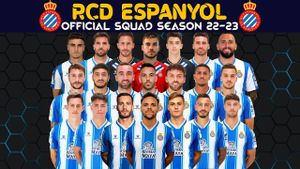Angelo Peruzzi, once hailed as one of the world’s best football goalkeepers, now reflects on his illustrious career and the seismic shifts within the sport. Today, the 54-year-old, known by the nickname "Cinghialone," opts for solitude among Italy’s natural landscapes rather than the limelight of the football field. "Oggi non potrei giocare, il calcio ormai è un cinema. Vado a funghi e a caccia. Le pillole per dimagrire e la squalifica per doping? Ero un bambacione," he states candidly, emphasizing his discontent with the current state of football.
Born and raised in Blera, Viterbo, Peruzzi’s footballing beginnings were almost accidental. The pivotal moment came during elementary school when his teacher organized a game. "Chi va in porta?" she asked, leading to the decision based on who could touch the crossbar. From there, Peruzzi's path to professional football was set. His debut at 17 years old came under unusual circumstances during a match between Milan and Roma at San Siro on December 13, 1987. A firecracker thrown by fans forced the injury of Roma’s starting goalkeeper Tancredi, leading to Peruzzi being thrust onto the pitch. "Liedholm says: fate entrare il ragazzino. Tutta la panchina si volta..." he recalled, illustrating the nervous excitement of his unexpected debut.
His career blossomed as he played for various clubs, predominantly Roma and Juventus, where he truly made his mark. Peruzzi describes the era of his time at Juventus under coach Marcello Lippi with fondness, reminiscing about winning the Champions League and various domestic titles. "Siamo stati benissimo," he shared, underscoring the camaraderie and success of his Juventus squad during the mid-90s.
Despite his achievements, Peruzzi acknowledges past mistakes, particularly during his time with Roma when he was suspended for doping after testing positive for amphetamines. Reflecting on this controversial time, he admits to his naivety, saying, "Ero ingenuo, un 'bambacione'." The scandal brought shame, leading him to retreat from the public view and suffer intense media scrutiny. It was during the aftermath of this ordeal, with support from president Viola, where he learned valuable lessons about trust and resilience.
The pivotal moment for Peruzzi came when he received a call from Juventus, which brought him back to life. "Montezemolo wanted me: tornai a vivere," he revealed, signifying the joy and relief his return to professional football brought him. The success followed; he won everything with the club, including the illustrious Champions League, marking his status as one of the sport's elite.
Yet, as he transitioned through clubs, from Juventus to Inter, and later Lazio, he faced challenges both on and off the pitch. His spell at Lazio proved bittersweet as the club faced financial difficulties. Despite these setbacks, Peruzzi’s personal happiness remained intact, highlighting the growth he experienced through adversity.
With the backdrop of triumphs, the narrative of Calciopoli emerges as Peruzzi tells of the anger felt within the team following the scandal. "Non discuto le sentenze. Ma Moggi io me lo ricordo bene: tutti lo cercavano," he remarked, illustrating the complex legacy the scandal left on Italian football.
Eventually, Peruzzi's football career culminated with the 2006 World Cup, where he served as Gianluigi Buffon's vice and contributed significantly to Italy's triumph. Though not on the field, he played his part as team manager. "Abbiamo vinto quel Mondiale per due ragioni," he asserted, emphasizing the team's motivation borne out of the shame from Calciopoli and the passion from those who trained hard to contribute.
Today, Peruzzi enjoys life away from the pitch, tending to his land, hunting, and taking solace in nature. This simplicity brings him joy, contrasting sharply with his football career where life was fast-paced and competitive. His thoughts convey nostalgia yet acceptance of how football has evolved: "Tutto è cambiato. I giocatori? Un’azienda. Firmano un triennale e dopo pochi mesi chiedono l’aumento col procuratore o vogliono essere ceduti. I portieri? Più bravi coi piedi che con le mani," he reflects, showing both his disbelief and resignation at modern football.
Angelo Peruzzi stands as a symbol of resilience, and his rich memories inspire others to appreciate the game’s heritage. He concludes subtly, reflecting on modern football’s tumultuous nature, often yearning for the simpler times he cherishes. For Peruzzi, his roots remain firmly planted, both metaphorically and literally, as he finds contentment off the field, away from the football cinema.



